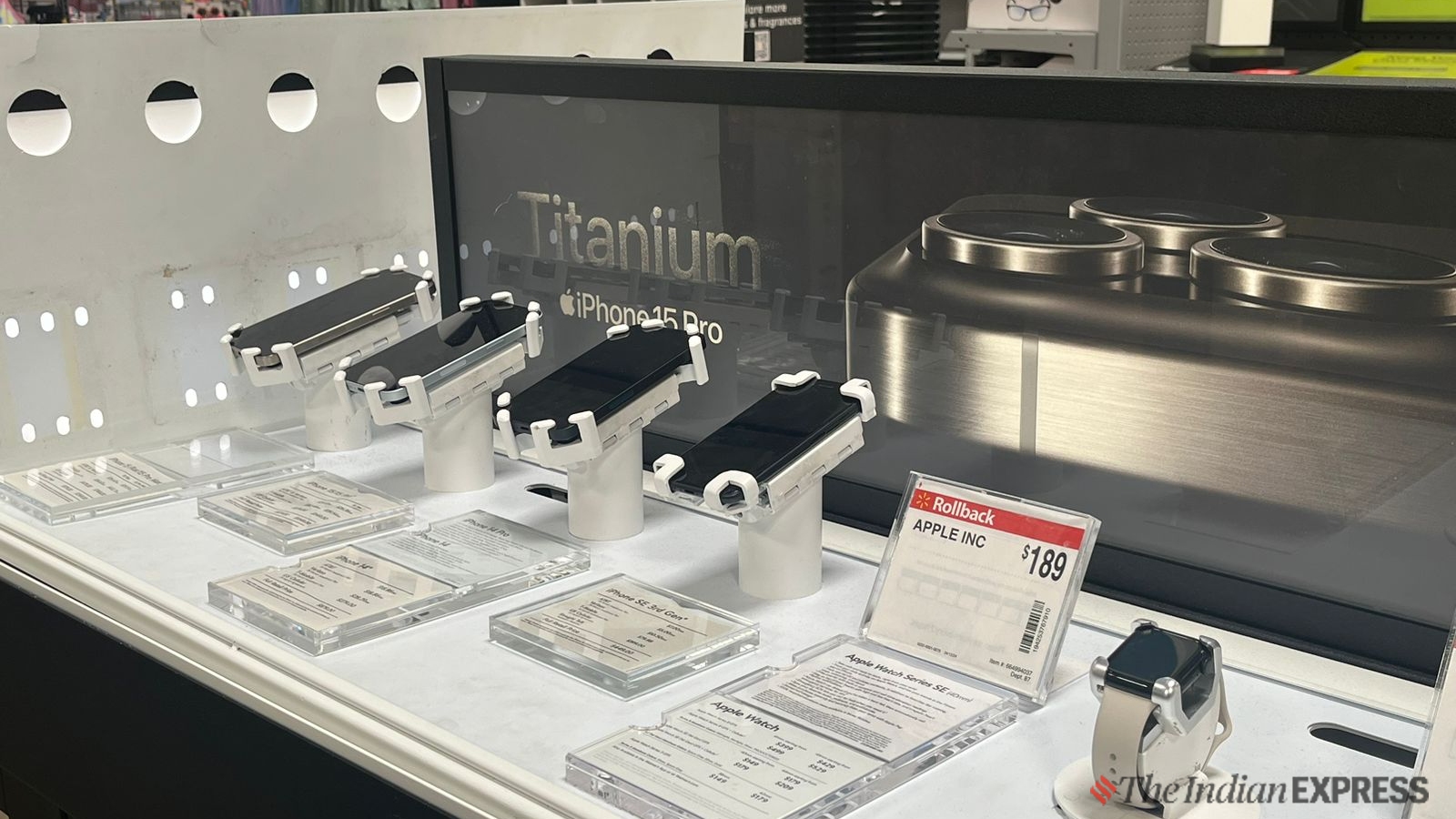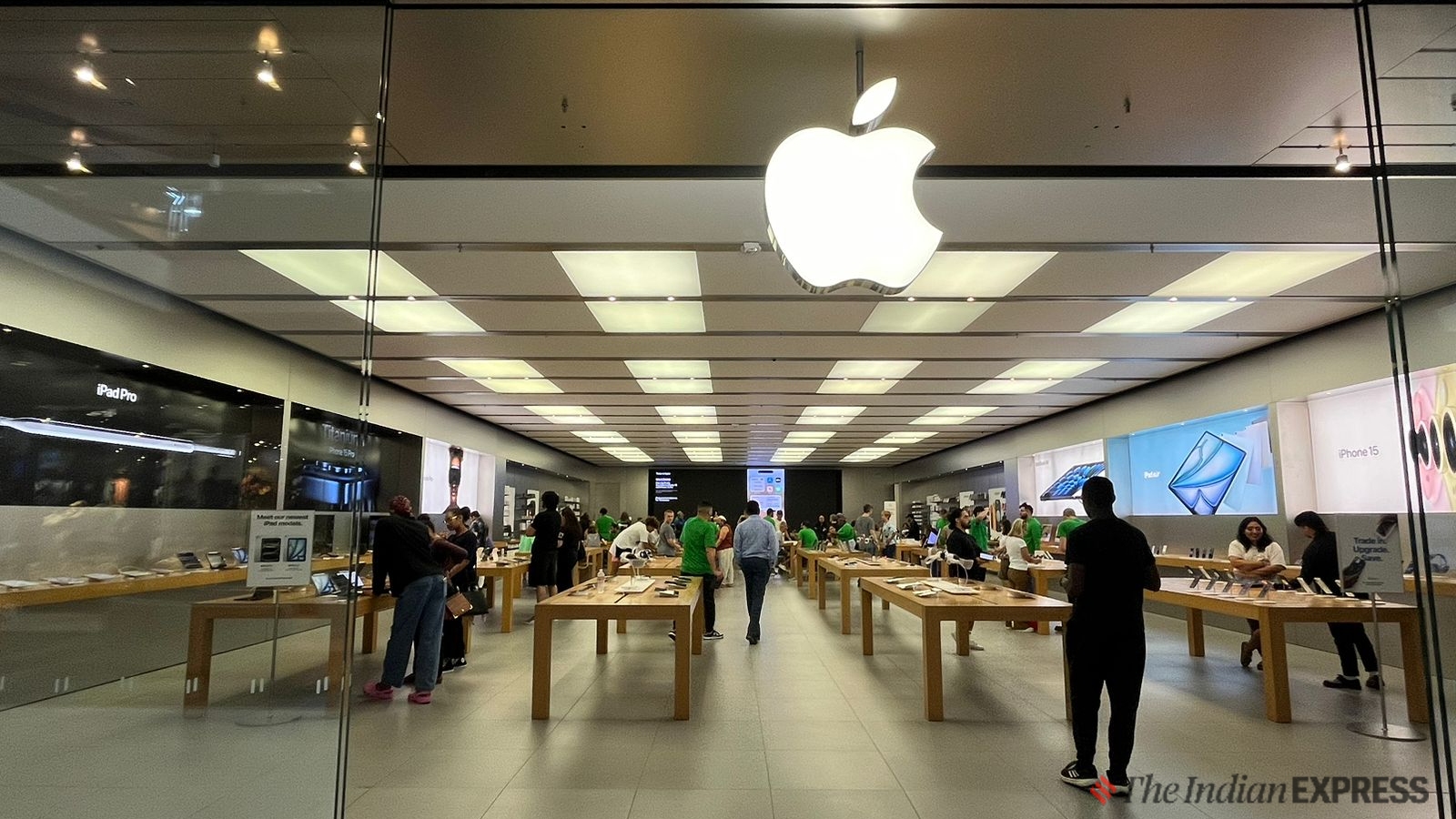The AI frenzy that first caught attention with OpenAI’s ChatGPT two years ago is finally ready for evolution. This time, it is up to Apple to make it more mainstream with a unique spin on what many are calling the evolution of the internet. At its Worldwide Developer Conference (WWDC) starting Monday, Apple will share an early glimpse of how generative artificial intelligence can make everyday consumer products such as the iPhone and Mac as well as apps that billions of people use every day more intelligent. However, don’t expect Apple’s AI strategy to include sweeping changes yet, as Cupertino may take one step at a time to show the progress it has made in artificial intelligence behind the scenes rather than adopting the more ambitious approach its rivals have taken. Here’s a peak at what Apple might reveal at its annual developer conference.
WWDC 2024 to be AI-focused, front and center
 This year’s developers conference will be all about “Apple Intelligence” (Image credit: Anuj Bhatia/The Indian Express)
This year’s developers conference will be all about “Apple Intelligence” (Image credit: Anuj Bhatia/The Indian Express)
Google, Microsoft, and OpenAI have had a head start in the AI arms race, leaving many wondering why Apple is lagging behind. The iPhone maker has mostly been tight-lipped about how it sees GenAI playing a much bigger role in the Apple universe, although some argue that Cupertino may be underprepared with the new technology. However, we do know that Apple is under pressure to unveil a strategy and lay the groundwork needed to bring GenAI to its entire product lineup. But whatever Apple announces at WWDC is seen as a work in progress, an early preview of sorts, rather than a complete AI strategy.
WWDC typically includes updates to the operating systems that run the iPhone, iPad, Mac, Apple Watch, Apple TV, HomePod, and Vision Pro. Those will be announced, but what’s new this time will be AI capabilities seeped into operating systems as well as core features and apps such as Siri, Messages, and Safari.
Apple is expected to add a GenAI layer on top of the upcoming iOS 18, iPadOS 18, and macOS 15, which will be rolled out to compatible iPhone, iPad, and Mac models later this year. Expect subtle changes, not drastic ones, with a focus on enhancing the apps and features that consumers use every day. Things like making Siri more conversational, voice memo transcriptions, faster search, ability to summarize news stories, documents, and notifications, and the use of AI to create custom emojis based on what users are texting, are something that’s possibly coming. These aren’t breakthrough AI features in any form, as many of them are already being offered by Google on Pixel devices. Apple is unlikely to unveil a ChatGPT-like chatbot. Instead, the company may partner with OpenAI to beef up Siri, its voice-based assistant, making it handle more complex tasks.
 iPhone 15 Pro with the A17 Pro chip to get the best of AI features (Image credit: Anuj Bhatia/The Indian Express)
iPhone 15 Pro with the A17 Pro chip to get the best of AI features (Image credit: Anuj Bhatia/The Indian Express)
But the key to Apple’s AI strategy is whether it takes the route of on-device AI, going completely offline or cloud-free AI, or settles for a hybrid AI approach. If it goes for on-device AI, the experience is faster (the role of homegrown LLMs is crucial) while also protecting users’ privacy. But if it chooses to partner with an external company for cloud-based features, if it all happens, it may bring Apple on the radar of privacy crusaders, as the move undermines Apple’s argument that it is better off protecting user data and security. Trust is the biggest asset Apple has over Google or Microsoft right now. Apple has marketed privacy as a centerpiece in its strategy for years but it remains to be seen how it addresses AI privacy issues that companies like Google and Microsoft are grappling with lately.

However, where Apple will make a difference is in how it rolls out the AI-focused features as part of “Apple Intelligence” to users. Unlike others, Apple may use a “preview” label for some AI features, proving that AI is still not as mature as many would like to believe with some chance of errors. This is a more cautious approach when looking at artificial intelligence, which has generated inaccurate and dangerous statements, creating a sense of distrust in society.
 Apple might partner with OpenAI to deliver new generative AI experiences (Image credit: Anuj Bhatia/The Indian Express)
Apple might partner with OpenAI to deliver new generative AI experiences (Image credit: Anuj Bhatia/The Indian Express)
Apple may not be in a rush to adopt AI as aggressively as many of its competitors in Silicon Valley, but there is an urgency to adopt artificial intelligence and look for a way to spur sales of iPhones and Macs that don’t seem to be growing. as much as they once did. Maybe Apple’s business model, like Google’s, isn’t threatened by the rise of ChatGPT, opening the door to change, but somewhere Gen AI is creating more rivals and competition in the cut-throat tech space more than ever. Microsoft is going all-in on the AI boom, and it’s becoming stronger than ever, banking on its billions of investment in OpenAI and how it’s adding AI copilots throughout its product line. Qualcomm, too, is making a mark with how aggressive it has become with new ARM-based computer chips for Windows-powered Copilot Plus PCs, going toe-to-toe with the Apple-designed chips that power current Macs.
Investors increasingly want to see Apple jump into the AI bandwagon. But given how Apple operates and looking at the past, Cupertino’s AI strategy needn’t be based on hype but rather on building AI that improves products consumers are already familiar with, rather than using AI to solve something that isn’t needed.
